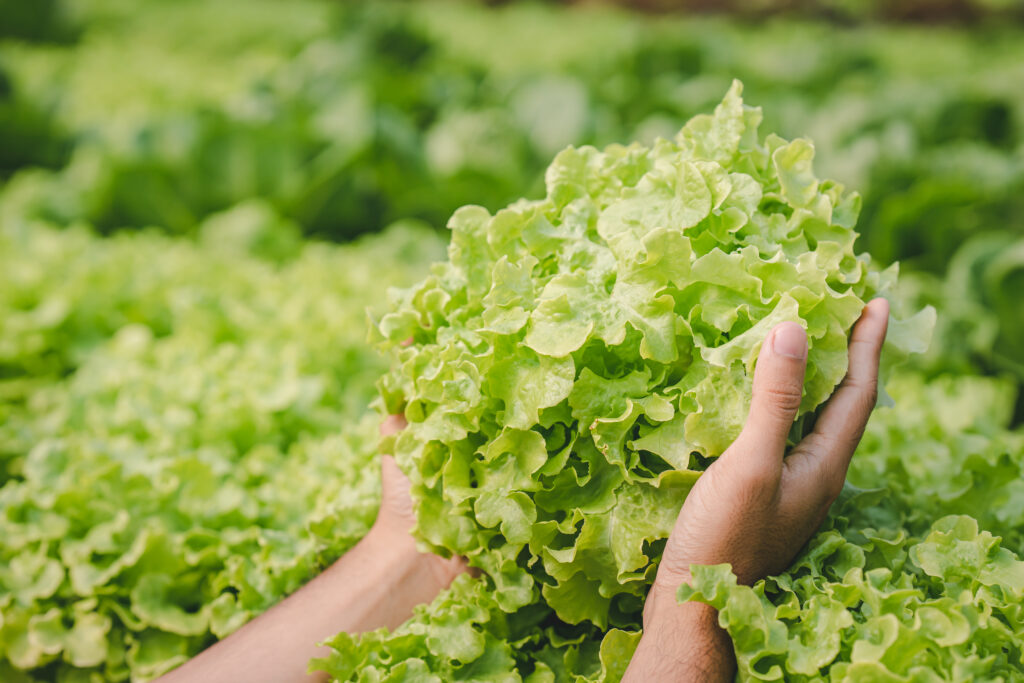Summary: Lettuce, a major food crop in the European Union, can associate with arbuscular mycorrhizal fungi (AMF), which can stimulate the synthesis of secondary metabolites, increasing plant tolerance to stresses and enhancing antioxidant compounds. A study was conducted to assess the benefits of AMF application on lettuce growth under different water deficits, its impact on lettuce nutritional quality, and its improvement when plants grew under reduced irrigation. Two lettuce cultivars, Batavia Rubia Munguía and Maravilla de Verano, were used in the study. Four water regimes were applied to both non-mycorrhizal and mycorrhizal plants: optimal irrigation, a water regime equivalent to 2/3 of FC, a water regime equivalent to 1/2 of FC, and a cyclic drought. Results showed that mycorrhizal symbiosis improved the accumulation of antioxidant compounds, mainly carotenoids and anthocyanins, in lettuce leaves, with these enhancements being higher under water deficit than optimal irrigation. Shoot biomass and leaf RWC were similar in lettuces subjected to 2/3 FC, suggesting that mycorrhizal symbiosis can improve lettuce quality and allow for reduced irrigation without reducing production.
Publication: Mycorrhiza









